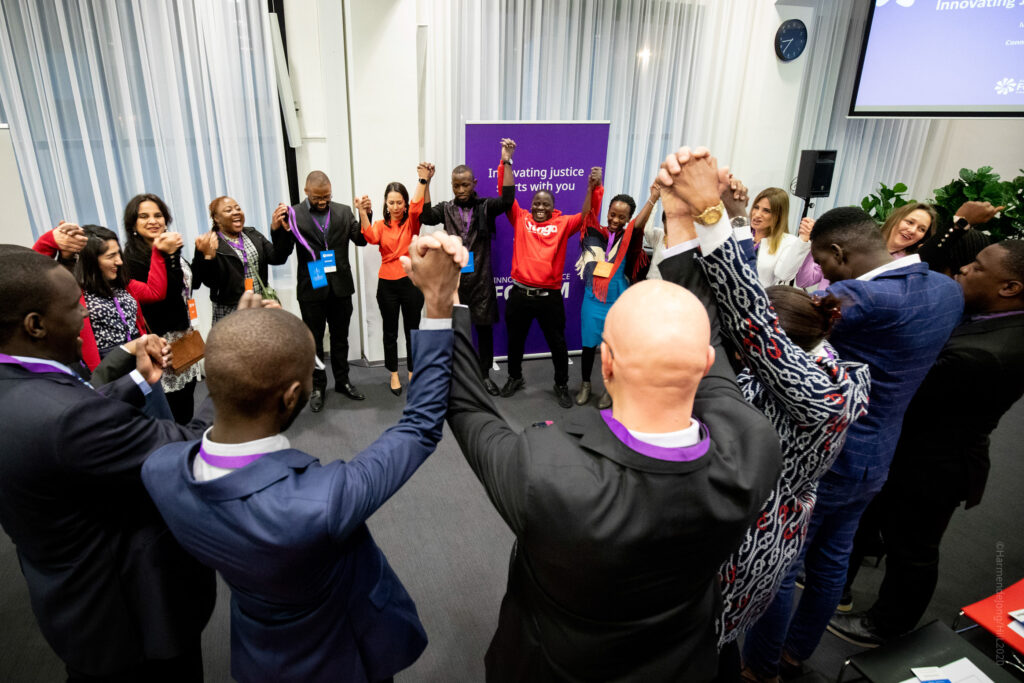E-Justice innovators connect virtually to advance people-centred justice in Europe and abroad
Takeaways from the article [do we need to design this part more?]:
- millions of people around the world now rely on mobile devices to meet their everyday justice needs
- you will find out more about the trend report
- The digital revolution and new technologies have behooved governments and citizens to rethink justice and access to justice.

The digital revolution and new technologies have behooved governments and citizens to rethink justice and access to justice. For example, millions of people around the world now rely on mobile devices to meet their everyday justice needs. However, this shift from physical to digital comes with functional, cultural, and regulatory challenges.
To understand how emerging technologies can be an accelerator for access to justice, both at the European level and abroad, the Portuguese Presidency of the Council of the European Union convened a virtual conference, “For a people-centered e-Justice”. The gathering sought to promote reflection among governments, international organisations, academia, civil society, and the private sector on the digitalisation of justice, and what it could mean for the principles of equity, transparency, and protection of human rights.
Organised over the course of two days, themes from “For a people-centered e-Justice” examined the future of justice, fair access and inclusivity, women in justice, and digital ethics and cybersecurity. It also highlighted several new innovations and initiatives.
HiiL played a prominent role on the second day of the conference. In the session, Connecting Technology and Innovation to Better Justice, HiiL CEO Sam Muller led a panel discussion on justice systems in Europe. The exchange featured Toñis Saar, Secretary General of the Ministry of Justice in Estonia and Renko Dirksen, a Member of the Board at ARAG SE in Germany.
“Technology allows more than we can afford today or are willing to afford today,” said Toñis. For his part, Renko added, “The customer experience should be at the foundation of legal systems, and we will need a generally accepted legal system that is digital.”
Professor Maurits Barendrecht, the Director of Research & Development at HiiL presented insights focused on data and evidence-based practice during his session, What is ‘better justice’: How can technology support people-centered justice? His presentation offered a snapshot into systematic approaches employed by HiiL over the past decade and further detailed in our latest Trend Report, Delivering Justice, Rigorously.
“One critical aspect to successful people-centred justice involves setting up task forces,” said Maurits. “These can help to create an environment that spurs and supports Gamechangers, the unique services or tools that can have the greatest impact towards realising justice transformation goals.”
Further reading

The promise of people-centred justice
We can strengthen justice systems by putting people and the outcomes they need first. This approach

Kaduna Justice Transformation Forum: Making People-Centred Justice Happen in Kaduna State
How do we communicate to critical stakeholders in a country that the legal infrastructure, processes and

9th Annual Innovating Justice Forum
The Forum will take place in the Peace Palace in The Hague, on 6 February 2019.
Read more about

Share it

